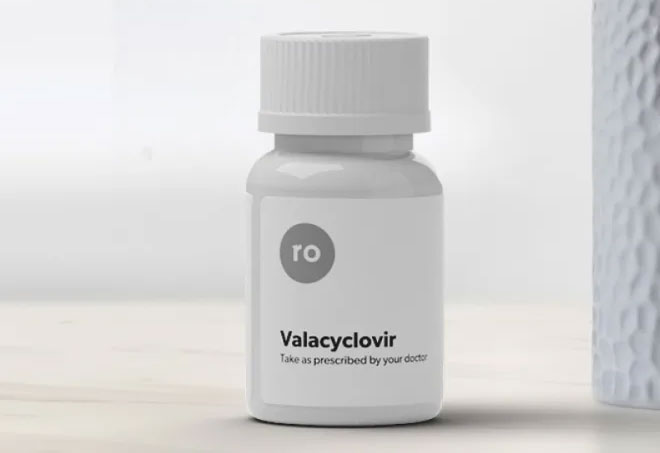How long does it take for valacyclovir to work to prevent transmission?
Valacyclovir is an antiviral medication often used to treat and prevent outbreaks of herpes simplex virus (HSV) infections, including genital herpes.

Valacyclovir can also reduce the risk of transmitting herpes to a sexual partner. How long does it take for valacyclovir to work to prevent transmission? It's effectiveness in this regard may take a few days to establish. It's important to take it consistently as prescribed by your healthcare provider to maximize its effectiveness in preventing transmission.
Here are some general guidelines:
- Reduction in Outbreaks: Valacyclovir can start to reduce the frequency and severity of herpes outbreaks within a few days to a week of starting treatment. However, it may take a few months for the full effect to be noticeable.
- Reduction in Transmission Risk: Valacyclovir can also reduce the risk of transmitting HSV to a sexual partner, even if you don't have visible symptoms. However, the effectiveness in preventing transmission may vary from person to person. Studies have shown that it can significantly reduce the risk of transmission, but it's not 100% effective.
- Consistency Matters: To maximize its effectiveness in preventing transmission, it's important to take valacyclovir consistently as prescribed by your healthcare provider. Typically, this involves taking a daily dose.
- Patience: It's important to be patient and continue taking the medication as prescribed, even if you don't see immediate results. Valacyclovir is not a cure for herpes, but it can help manage and reduce the risk of outbreaks and transmission over time.
- Consult with a Healthcare Provider: If you have questions or concerns about the effectiveness of valacyclovir in your specific situation, it's best to consult with your healthcare provider. They can provide personalized guidance based on your medical history and the specific type of herpes you have (HSV-1 or HSV-2).
How long after taking valacyclovir are you contagious? The amount of time of valacyclovir's effectiveness typically hinges on the severity of your symptoms and the timing of your treatment initiation. At the standard dosage of 1g taken twice daily, valacyclovir exhibits a quick response, and you can expect to experience some relief within 48 hours. In cases of severe herpes outbreaks, it may take slightly more time for Valtrex to effectively inhibit the replication of the HSV virus.
Valacyclovir works by suppressing the replication of the herpes virus in the body, which can reduce the amount of virus present in the genital tract. This reduction in viral shedding can make a person with herpes less contagious to their sexual partners.
Worry about herpes tranmission? Meet nearby people with herpes

PositiveSingles is one of the most popular dating websites for people suffering from herpes and other STD. It was initiated in 2001. With 1,510,800+ members you are sure to find lots of potentail people around you.
Join and meet nearby people with herpes, browse profiles and chat now!
It's important to note that valacyclovir is not a guarantee against transmission, and safer sex practices, such as using condoms, can further reduce the risk. Additionally, individuals with herpes should communicate openly with their sexual partners about their condition and take precautions to protect their partners.
How effective is valacyclovir in preventing transmission?
Valacyclovir can be effective in reducing the risk of transmitting herpes simplex virus (HSV) to a sexual partner, but it's important to understand that it is not 100% effective.
- When the partner with the virus took a placebo, 4 out of 100 people became infected.
- However, when the partner with the virus used antiviral medication daily, only 2 out of 100 people became infected.
The effectiveness of valacyclovir in preventing transmission can vary depending on several factors:
- Viral Shedding: Valacyclovir works by suppressing the replication of the herpes virus in the body. When the virus is less active, there is less viral shedding (the release of the virus from the skin or mucous membranes), which can reduce the risk of transmission. However, the virus can still be shed asymptomatically (without visible symptoms), and valacyclovir may not completely eliminate viral shedding.
- Consistent Use: Valacyclovir needs to be taken consistently as prescribed by a healthcare provider to be effective in reducing transmission risk. Missing doses or not taking the medication as directed can reduce its effectiveness.
- Type of Herpes: The effectiveness of valacyclovir in preventing transmission can vary depending on whether the person has genital herpes caused by HSV-1 or HSV-2. HSV-2 is typically associated with a higher risk of transmission, but valacyclovir can still be effective for both types.
- Safer Sex Practices: Even when taking valacyclovir, individuals with herpes should still practice safer sex measures, such as using condoms or dental dams, to further reduce the risk of transmission. These measures can provide an additional layer of protection.
- Partner's Risk: The risk of transmission also depends on factors such as whether the sexual partner has a history of herpes infection. If both partners have the same type of herpes, the risk of transmission may be lower.
- Viral Resistance: In some cases, the herpes virus can develop resistance to antiviral medications like valacyclovir, which can reduce their effectiveness. This is relatively rare but can happen.
Are you still contagious while taking valacyclovir?
Valacyclovir is an antiviral medication commonly used to treat herpes infections, including oral herpes (cold sores) and genital herpes. It works by inhibiting the replication of the virus in the body.
Can you spread herpes while taking valacyclovir? Valacyclovir can reduce the amount of virus present in your body, which means you are less likely to shed the virus and infect others during a herpes outbreak. However, it does not make you completely non-contagious.
While taking valacyclovir, the medication can help reduce the symptoms and duration of a herpes outbreak. It can also decrease the risk of transmitting the virus to others, but it does not completely eliminate the risk.
Valacyclovir does not cure herpes. It helps manage symptoms and reduce the frequency of outbreaks, but the virus remains in the body and can become active again in the future.
Should You Be On Suppressive Therapy When In a Relationship?
Whether or not you would like to use preventive medication is ultimately an individual decision. Many factors can play a role, such as how long you or your partner have had the infection, how frequent and severe the outbreaks are, whether you are male or female, the frequency of sexual contact and whether you use condoms.
Positive Singles: The #1 dating site to meet other people with herpes

PositiveSingles is one of the most popular dating websites for people suffering from herpes and other STD. It was initiated in 2001. With 1,510,800+ members you are sure to find lots of potentail people around you.
